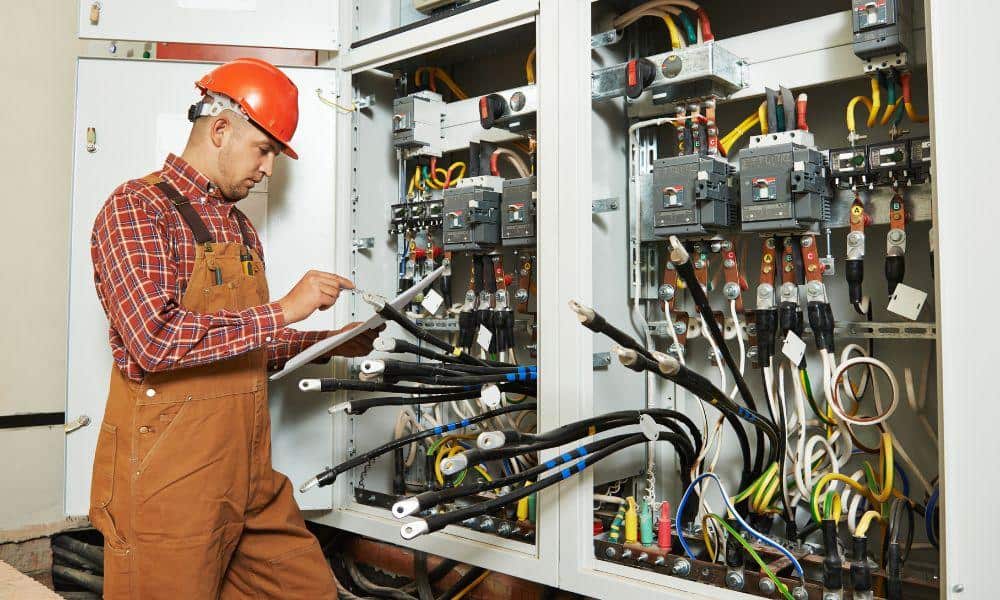Finding the right contractor for your electrical project can mean the difference between a job well done and a costly headache. Whether you’re managing a large-scale commercial installation, overseeing residential development, or upgrading key infrastructure like a load center in an existing facility, hiring a qualified electrical contractor is critical. But how do you choose the right one—and more importantly, how do you recognize the warning signs before you’re too far in?
Here’s a practical guide to help you identify trustworthy contractors and steer clear of the pitfalls that often come with poor hires.
Define Your Project Clearly
Before reaching out to contractors, have a clear understanding of your project’s scope. Are you upgrading your main electrical panel or installing a new subpanel? Do you require code-compliant wiring for a commercial renovation? The clearer you are, the more accurate your bids will be and the easier it will be to identify contractors with the right expertise. For instance, if your project involves modernizing the building’s electrical infrastructure—including replacing outdated equipment like a load center—you’ll want a contractor familiar with current NEC codes and high-capacity systems.
When your project is clearly defined, you’re better positioned to assess which contractors are qualified and who might be overstating their capabilities.
Look for Proper Licensing and Insurance
This might seem obvious, but many property owners skip over this step or take a contractor’s word at face value. A legitimate electrical contractor should carry the appropriate state license, which proves that they’ve met the education and experience requirements necessary to perform electrical work safely and legally. Make sure their license is active and in good standing—most state websites allow you to verify this quickly online.
Also, ask for proof of insurance, including both liability and workers’ compensation coverage. If an accident happens on your site and the contractor isn’t properly insured, you could be held liable. This is especially critical in electrical work, where the risks are inherently higher.
Ask for References and Check Their Reputation
Word of mouth remains one of the best ways to find reliable contractors. Ask colleagues in your industry for recommendations and follow up with references. When speaking with past clients, don’t just ask if the job was completed—ask about communication, timelines, unexpected issues, and how the contractor handled them.
In addition, look up online reviews on platforms like Google, Yelp, or even trade-specific sites. A few bad reviews aren’t necessarily a red flag—every business has off days—but patterns of poor workmanship, missed deadlines, or unprofessional behavior should not be ignored.
Evaluate Communication and Professionalism
The early stages of communication can tell you a lot. Does the contractor return your calls and emails promptly? Are they clear in their explanations, and do they ask detailed questions about your project? Do they show up on time for initial meetings?
A lack of responsiveness, vague answers, or disorganized behavior in the early stages can signal deeper problems down the line. A competent contractor understands the value of client relationships and will make communication a priority.
Review the Estimate in Detail
A professional contractor should provide a detailed estimate that includes materials, labor, timelines, and potential variables. Be wary of estimates that are unusually low or high compared to others—these could indicate either a lack of experience or an attempt to win the job with a lowball offer that later balloons with hidden costs.
If your project includes work on sensitive systems—such as rewiring or upgrading a load center to accommodate additional circuits—make sure the estimate reflects that complexity. This demonstrates that the contractor understands what the job entails and isn’t just offering a cookie-cutter solution.
Spotting Red Flags Early
Even with all precautions, some contractors may still fall short. Here are some warning signs to look out for:
- Reluctance to provide documentation: If a contractor hesitates to show proof of license, insurance, or references, it’s best to move on.
- Pressure tactics: Beware of contractors who try to rush you into signing a contract or paying a large deposit upfront. Professional contractors understand that you need time to make an informed decision.
- Lack of permits: Some contractors may suggest skipping permits to “save time or money.” This is a major red flag, especially in electrical work where unpermitted jobs can lead to safety hazards and failed inspections.
- Overpromising timelines: If someone says they can complete your project in half the time others suggest, ask them to explain how. Fast work isn’t always good work, especially with complex installations or system upgrades.
- Inconsistent team: If different people show up every day without clear supervision, this could signal poor project management. Ideally, you should know who your point of contact is and who’s responsible for each aspect of the job.
Verify Experience in Specialized Work
Electrical work isn’t one-size-fits-all. A contractor might be great at residential service calls but struggle with commercial building retrofits. If your job includes specialized components—like integrating an advanced backup generator system or configuring a high-load capacity load center—ask for examples of similar past projects.
A reputable contractor will be happy to discuss their experience and may even offer site tours or visual documentation of previous work. Their confidence in showing real-world results can go a long way in building your trust.
Final Thoughts
Choosing the right electrical contractor isn’t just about price—it’s about quality, reliability, and long-term peace of mind. By doing your homework upfront, asking the right questions, and trusting your instincts when red flags appear, you can avoid costly mistakes and ensure your electrical project is in capable hands.
Whether you’re upgrading to accommodate new technology, adding capacity via a modern load center, or simply aiming for a safer, more efficient electrical system, the right contractor will not only meet your expectations—they’ll exceed them.




